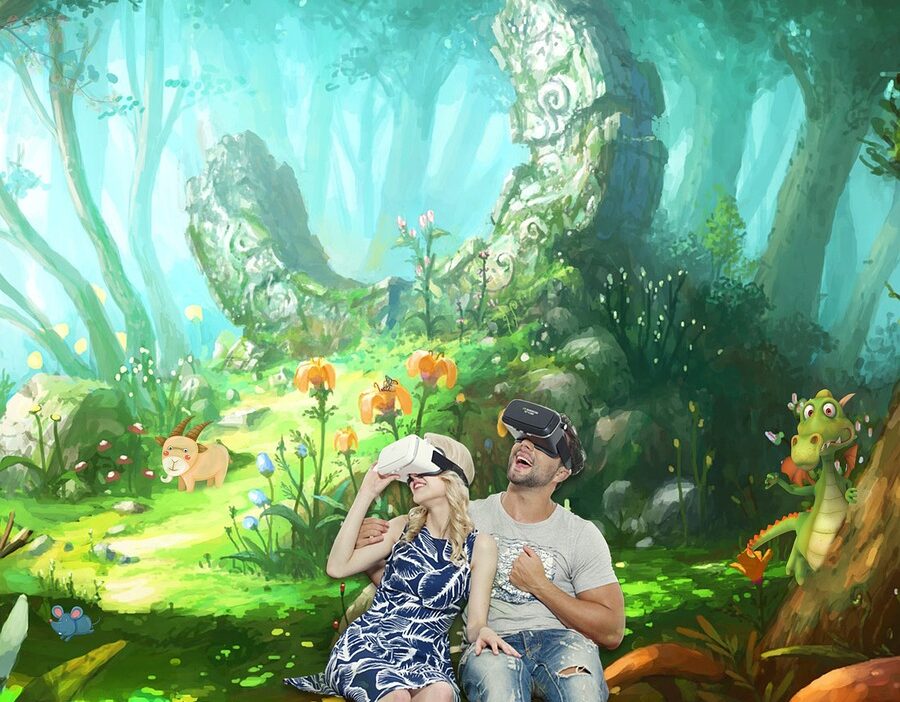As technology continues to advance at a rapid pace, the concept of the metaverse is emerging as a transformative force in the digital landscape. Defined as a collective virtual shared space, the metaverse transcends traditional boundaries of physical reality, blending augmented reality (AR), virtual reality (VR), and the internet into an immersive experience that challenges our notions of social interaction, economy, and digital presence.
What is the Metaverse?
The term "metaverse" can be traced back to Neal Stephenson’s 1992 science fiction novel "Snow Crash," envisioning a virtual reality space where users interact with a computer-generated environment and other users through avatars. Today, the concept has evolved into a much broader idea that encompasses various interconnected virtual environments where individuals can work, play, socialize, and create.
Key Features of the Metaverse
-
Interactivity: Unlike traditional online experiences, the metaverse allows users to interact in real time with both the environment and other participants, leading to dynamic social experiences.
-
Persistence: The metaverse exists continuously, even when users log off. This persistent environment means that actions and changes made by users can live on and affect subsequent interactions.
-
User-Created Content: A crucial aspect of the metaverse is its emphasis on user-generated content. From digital art to entire virtual worlds, users can create, share, and monetize their creations, fostering a culture of creativity and collaboration.
-
Economy: The metaverse introduces new economic possibilities, including virtual real estate markets, digital currencies, and in-game economies that allow for real-world transactions.
- Cross-Platform Compatibility: The ideal metaverse will support seamless interaction across different platforms and devices, allowing users to move between virtual spaces without barriers.
The Role of Technology in the Metaverse
Advancements in several technologies are driving the development of the metaverse:
-
Virtual and Augmented Reality: VR headsets like the Oculus Quest and AR tools like Microsoft HoloLens provide immersive experiences that enhance real-world and virtual interactions.
-
Blockchain: The use of blockchain technology enables decentralized ownership of digital assets, allowing users to buy, sell, and trade virtual goods in a secure environment.
- Artificial Intelligence: AI plays a critical role in enhancing user experience within the metaverse, from creating realistic NPCs (non-player characters) to personalizing content based on user behavior.
Applications of the Metaverse
The metaverse has profound implications across various sectors:
-
Gaming: Gaming companies are leading the charge with immersive multiplayer experiences that allow players to engage in vast virtual worlds, create content, and earn real-world rewards.
-
Social Media: Platforms like Facebook (now Meta) are venturing into the metaverse, envisioning a social space where users can gather, interact, and share experiences in more profound ways than mere text or video.
-
Education: Educational institutions are exploring virtual classrooms and interactive learning experiences, making education more accessible and engaging.
-
Business: Companies are utilizing the metaverse for virtual meetings, remote work, and even digital conferences, enhancing collaboration in a virtual space that mimics physical interactions.
- Healthcare: The metaverse can facilitate medical training, simulations, and remote consultations, revolutionizing how healthcare professionals are trained and how patients access care.
Challenges and Ethical Considerations
While the metaverse offers exciting possibilities, it also raises significant challenges:
-
Privacy: The immersive nature of the metaverse raises concerns about data collection and privacy. Users may share more personal information than they realize, necessitating robust data protection measures.
-
Digital Divide: Access to the metaverse may not be equal for all. Individuals without high-speed internet or advanced hardware may face barriers to entry, exacerbating existing inequalities.
-
Identity and Security: The potential for identity theft and fraud in virtual spaces poses a significant risk, as users may not have the same protections they do in the physical world.
- Mental Health: The immersive, often addictive nature of the metaverse may lead to mental health challenges, especially among younger users who may struggle to balance their digital and physical lives.
The Future of the Metaverse
As we venture deeper into the twenty-first century, the metaverse is poised to redefine how we interact with the digital world. With major tech companies investing heavily in its development, the vision of a fully realized metaverse is becoming increasingly tangible.
However, its success will depend on addressing emerging challenges and ensuring that technological advancements serve to enhance our lives rather than complicate them. As we explore this new frontier in digital reality, it’s crucial to engage in conversations about ethics, inclusivity, and the potential societal impacts of the metaverse.
In conclusion, the metaverse represents not just a new technological frontier, but a cultural evolution where digital and physical realities blend, offering endless possibilities for those willing to engage with them. As we stand on the brink of this exciting new world, the journey has just begun.



